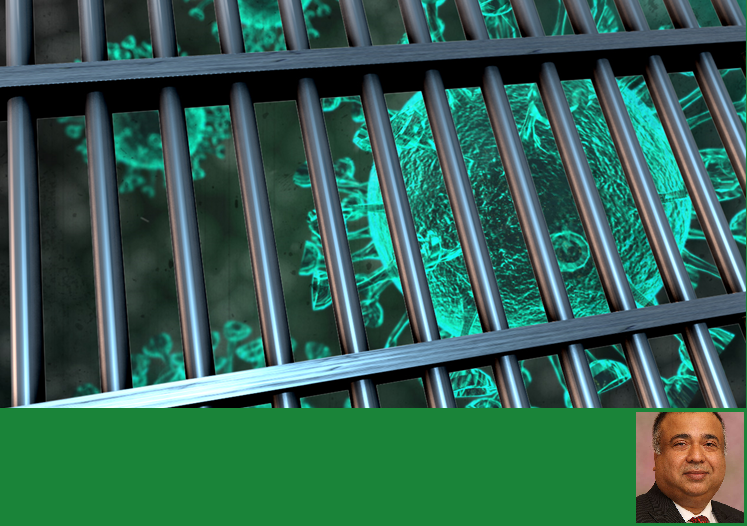A Precious Lesson To Learn From The Corona Virus Outbreak
The objective truth is that regardless of who we are, the virus is sparing none of us, and we are losing our loved ones to the deadly contagion on a daily basis.
 By Jilani Warsi
By Jilani Warsi
The corona virus does not discriminate against its victims on the basis of their social, religious, linguistic, and geographical backgrounds, and nor do the brave medical professionals who valiantly go wherever contagion spreads, treating patients while risking their own lives. There is no doubt that these heroes are frightened, exhausted, overwhelmed, and are concerned about their own lives. However, these dedicated doctors, nurses, and respiratory therapists are proving the simple truism that humanity thrives when we break down the trivial boundaries that divide us. The silver lining in the corona virus crisis is that the deadly virus has exposed how vulnerable humans are. Every single day we learn of new cases, and the number of deaths caused by the virus is increasing significantly despite the heroic efforts of the medical experts and first responders.
These are difficult times, to say the least, but it is also the time to reflect on the deeper meanings of life. The corona virus has taught us the precious lesson that regardless of the differences between us, we are the same at the core, fragile and transient. As the country is suffering one of the worst tragedies that has ever beset its people, we must remain united and observe social distancing to help the doctors that are fighting the battle with limited resources. This is the time to empathize with our fellow humans, feeling their pain and suffering, and do our minuscule part by isolating ourselves in our humble abodes. It is when we see our reflection in other people that we come to realize that the differences among us are mostly subjective. The objective truth is that regardless of who we are, the virus is sparing none of us, and we are losing our loved ones to the deadly contagion on a daily basis.
This is also the time for excellent leadership, executive decisions, and ample supplies of medical equipment and therapeutic resources. The current administration dithered when the American people contracted the virus, and thousands of lives were lost, because the powers that be failed to perform their fiduciary duty to protect the civilians in time. The much-needed succor eventually arrived, but precious lives could have been saved. While we cannot revive those, who have succumbed to the virus, the leadership can take effective measures to ensure that most, if not all, lives are protected moving forward. We can do our part as law-abiding citizens by observing social distancing when we leave the comfort of our homes and by staying home. We also must contemplate life’s grandeur and purge our ill feelings against those who may not share our physical and cultural attributes. The virus has taught us a precious life lesson that beneath the veneer of superficial qualities, we are essentially the same assailable creatures that can be physically and emotionally wounded easily.
(Dr. Jilani Warsi earned MA in English included courses in descriptive linguistics, historical linguistics, and language teaching. He pursued an MA in applied linguistics at California State University in Northridge (CSUN), focusing on the acquisition of second language phonology. His Ph.D. dissertation focused on the acquisition of English /l/ and /r/ tokens by native Japanese speakers. In addition to language acquisition, he is interested in inter-language, phonology and phonetics, applied linguistics, and second language pedagogy. He taught at Harvard University, California State University in Northridge, Boston University, Fisher College, Newbury College, Salem State College, the Framingham State College's International Education Programs in Guyana, Trinidad & Tobago, Bolivia, Costa Rica, Poland, Brazil, Honduras, Bahrain, Kuwait City, Lebanon, Nicaragua, Mexico, Italy, Panama, Mariana Islands, South Korea, Thailand, and China. He joined the English Department at Queens-borough Community College in 2004 and have taught remedial reading, writing, and English 101 courses. Linguists say that the most human thing there is about being human is language. This simple truism has always fascinated him and has sparked his interest in the complicated process of first and second language acquisition.)



















Comments